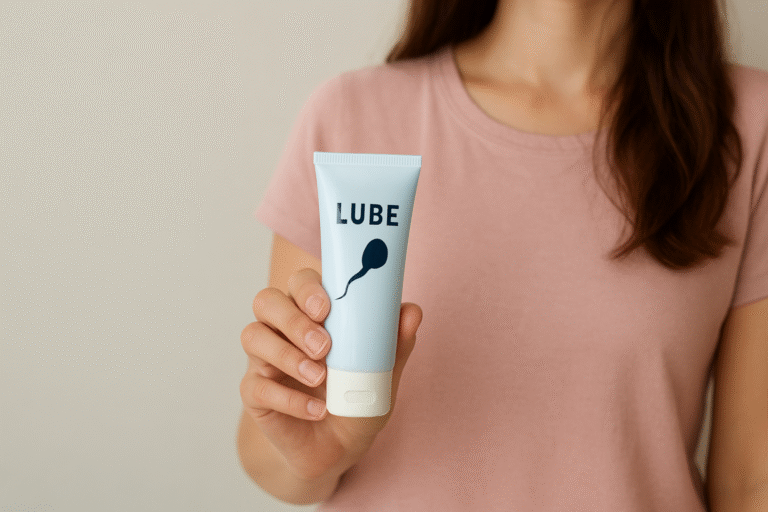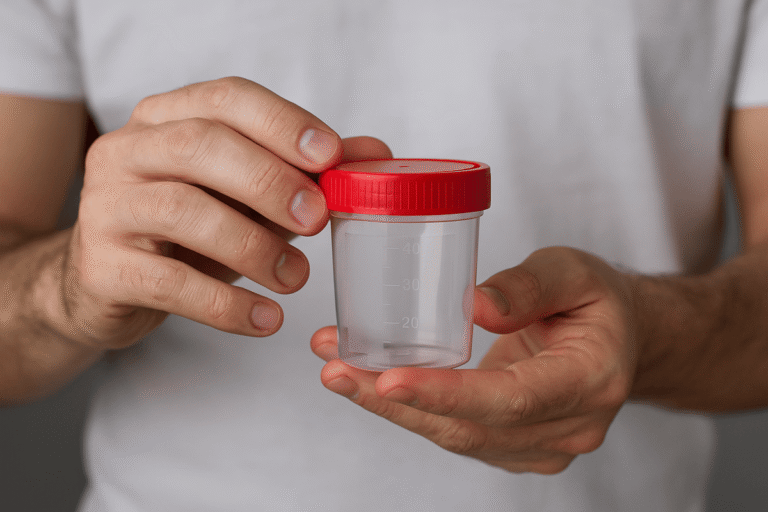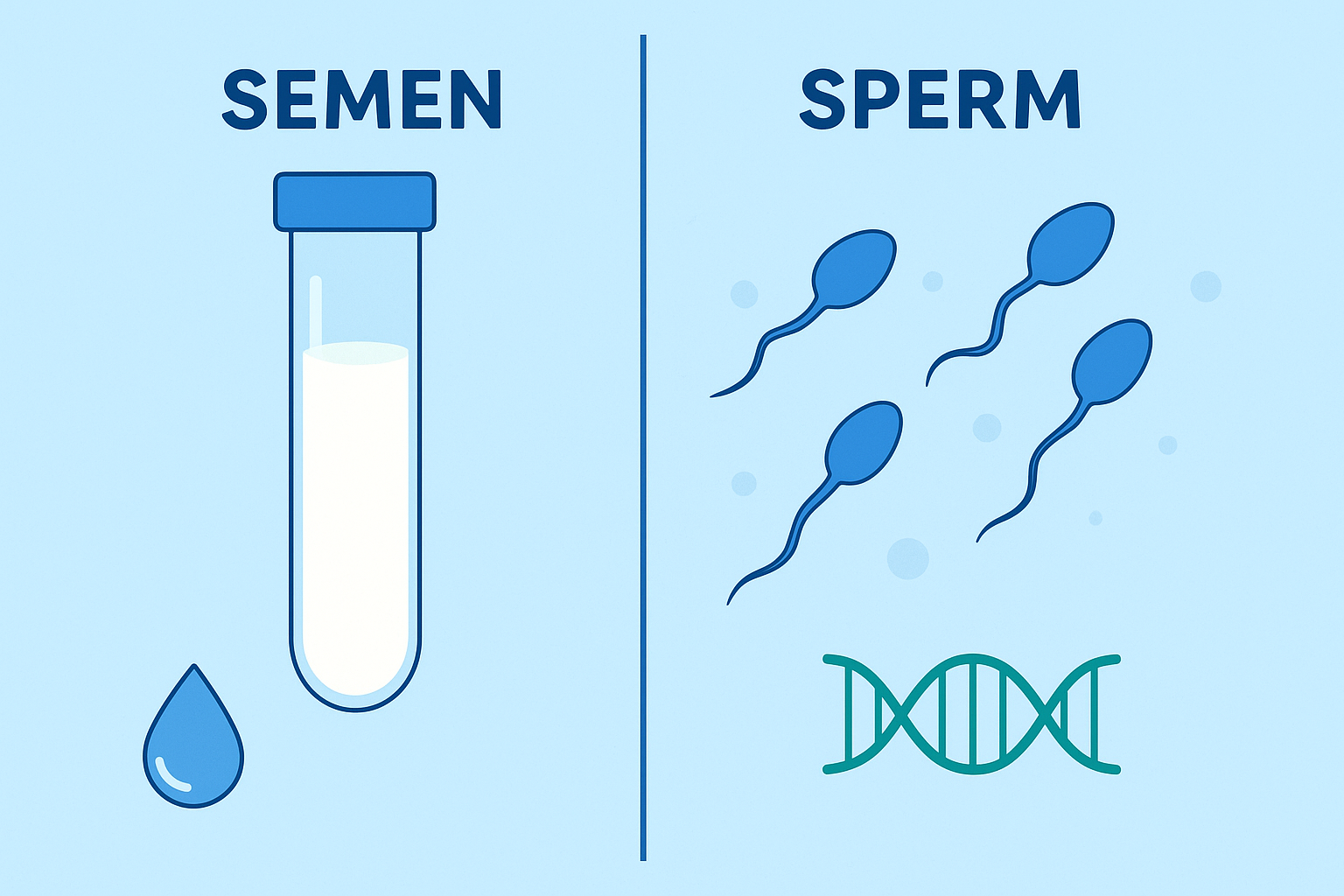Premature ejaculation (PE) is one of the most frequent sexual problems for males, and it can happen to as many as 1 in 3 men at some point. Even though it happens a lot, people don’t talk about it or feel ashamed about it. If you regularly ejaculate sooner than you or your partner wants—within one minute of penetration or perhaps before it—you may have premature ejaculation. This doesn’t just affect how well you can do things physically; it also lowers your confidence, makes you anxious about being close to someone, and stresses relationships a lot.
The good news is that there are many ways to treat PE. The first step to getting back in control is to figure out why it happens. This guide goes into great detail about the biological triggers, psychological causes, and most importantly, the evidence-based solutions—from pelvic floor rehab to behavioural techniques—that will help you change your sexual experiences.
What is Premature Ejaculation? Defining the Experience
Clinically, premature ejaculation is when ejaculation happens within around one minute of vaginal penetration (lifelong PE) or when the time it takes for ejaculation to happen is significantly shorter, typically to three minutes or less (acquired PE), causing distress. It’s important to note that this doesn’t include fast ejaculation that happens now and then because of excitement, strong arousal, or a long period of not having sex.
If you have true premature ejaculation, you have a pattern where you can’t hold off on ejaculating during partnered sexual activity. This can make you feel frustrated, avoid intimacy, or have low self-esteem. It is important to be able to tell the difference between a clinical issue and natural changes in sexual response. Knowing what this word means helps you see the situation clearly and leads to targeted remedies instead of pointless worry.
Why Premature Ejaculation Occurs
Psychological Contributors: The Mind-Body Connection
Psychological considerations are generally the main causes of early ejaculation. Performance anxiety, or the overwhelming fear of not being able to perform sexually well, starts a bad cycle: worrying about ejaculating too rapidly makes the nervous system more active, which makes ejaculation happen faster. In the same way, stress, despair, or guilt about sex that hasn’t been dealt with might mess up the ejaculatory response.
Rushing during early sexual experiences (such as being afraid of getting caught) can make the body more likely to ejaculate quickly. Relationship problems, not being able to talk to your spouse, or holding on to anger can also make you more emotionally tense, which makes it hard to have relaxed, regulated sex. To get over PE, you frequently have to deal with these mental and emotional aspects first.
Biological Triggers: Hormones, Nerves, and Inflammation
There are many biological reasons why someone could ejaculate too soon. Serotonin levels that are too low are important because this neurotransmitter helps modulate the ejaculatory reflex. Low levels are connected to poor control. Thyroid problems or inflammation that makes the penis more sensitive (like prostatitis) might make latency shorter. Surgery (like a prostatectomy) or neurological diseases (like multiple sclerosis) can damage nerves and stop signals from getting through.
Genetics also plays a part. Studies show that men who have had PE for a long time generally have family relatives who have had the same thing happen to them. Some drugs, notably some antidepressants (but others treat PE!), can have consequences that weren’t planned. Finding out what biological problems are at the root of a problem frequently involves a medical evaluation, but it is necessary for effective therapy.
Also Read: Learn About Sexual Energy
Relationship Dynamics and Learned Behavior
Problems in a relationship might cause premature ejaculation. Having sex less often can make you more aroused and make you ejaculate faster. Not being able to talk about what you want or don’t want makes you anxious, and pressure from a partner (real or imagined) makes things worse. On the other hand, partners who are there for you are highly important for healing. “Learned” premature ejaculation is also prevalent.
If someone had to speed through their first sexual experiences because they were inexperienced or because of circumstances, their body may have gotten used to that pattern. To break this training, you need to make an effort and often use guided procedures to retrain the ejaculatory response in a safe emotional setting.
The Overlooked Link: Premature Ejaculation and Erectile Dysfunction
Premature ejaculation and erectile dysfunction (ED) often happen at the same time, making sexual health a complicated issue. Men with ED may hasten sexual activity without meaning to because they are worried about losing their erection. This can lead to them teaching themselves to ejaculate too soon. On the other hand, the stress and shame of having chronic PE can make performance anxiety so bad that it leads to secondary ED. Diabetes, heart disease, depression, and chronic stress are all risk factors for both illnesses.
They all impair neuron function, blood flow, and hormone balance. Treating one often helps the other. For example, strengthening the pelvic floor improves blood flow (which helps with erections) and muscle control (which delays ejaculation). When you deal with each of them as a whole instead of separately, you can make more lasting improvements in your sexual experiences.
Pelvic Floor Power: Your Secret Weapon for Control
The bulbocavernosus and ischiocavernosus muscles in the pelvic floor are very important for controlling ejaculation. These muscles twitch in a regular way during orgasm to push forth semen. Weakness or poor coordination might cause involuntary, fast contractions that make a man ejaculate too soon.
On the other hand, making these muscles stronger makes it easier for you to intentionally tense them, which might help you stop the urge to ejaculate when you feel it coming on. Kegel exercises that focus on the pelvic floor are an important part of managing PE. It’s also crucial to learn how to relax and isolate these muscles when you’re very excited, because persistent tension in this area can make you ejaculate faster. Pelvic floor training is a safe and empowering approach to get your sexual response back under your control.
Proven Strategies to Manage Premature Ejaculation
Behavioral Methods: The Start-Stop and Squeeze Techniques
The start-stop approach and the squeeze technique are two very efficient behavioral retraining techniques for premature ejaculation. With the start-stop method, you or your spouse stimulate the penis until you feel pre-ejaculatory tension, which is the “point of inevitability.” Then you cease all stimulation for 20 to 30 seconds until the urge goes away, and then you start again. Do this 3–4 times before letting yourself ejaculate.
The squeeze technique involves putting tight pressure on the frenulum (the bottom of the glans) or the coronal ridge at the height of arousal. This makes the penis less erect and delays ejaculation. If you practice these tactics every day for weeks, they will help you become more aware of your senses and learn how to manage them. They will also make you last longer by stopping the automatic ejaculation reaction during sex.
Getting good at Kegel exercises for the pelvic floor
Strengthening your pelvic floor is a way to stop premature ejaculation before it happens. To do Kegels the right way:
- Identify the muscles: Stop urination in the middle of the stream or tighten the muscles that keep you from passing gas.
- Exercise: For 3 to 5 seconds, tighten these muscles, then relax for 5 seconds. Three times a day, try to do 10 to 15 reps.
- Advanced training: Once you’re strong, practice fast “flutter” contractions and long holds when masturbating. You should also learn to strain your pelvic floor when you’re most aroused to delay ejaculation.
Results usually show up after 4–8 weeks, so it’s important to be consistent. When you do this with deep diaphragmatic breathing during sex, it will help you relax and have more control.
Medical and Therapeutic Interventions
Medical alternatives can aid when behavioral measures don’t work:
- Topical Sprays/Creams: Lidocaine or prilocaine-based topical sprays or creams, such Promescent™, can help make the penis less sensitive by 10 to 15 minutes before sex.
- Oral Medications: Off-label SSRIs like dapoxetine (Priligy® approved for PE) or daily sertraline raise serotonin levels, which slow down ejaculation.
- Therapy: Cognitive Behavioral Therapy (CBT) helps with anxiety and cognitive patterns, whereas sex therapy involves sensate focus exercises to help people get closer to one another without feeling pressured to perform.
A urologist or sexual health expert can make therapies more specific, especially if there are problems with the pelvic floor or hormones.
A Whole-Person Approach to Better Sex: Beyond the Bedroom
Managing premature ejaculation isn’t just about using certain tactics; it’s about changing your whole way of living. Regular cardiovascular exercise increases blood flow and lowers stress chemicals. Mindfulness meditation or yoga can lessen your baseline anxiety, which can help you be more aware of your body during sex. Talking openly with your spouse takes the burden off. Talk about your wants and anxieties, and try non-penetrative intimacy to help you feel better about yourself.
Cutting back on alcohol and quitting smoking also helps because both damage nerve function. Getting enough sleep helps keep chemicals like testosterone and cortisol in check, which can affect sexual health. Seeing sex as a shared adventure instead of a performance changes the way people interact with one another, making sexual experiences more linked and less focused on when to ejaculate.
Conclusion: Empowerment is Within Your Reach
Premature ejaculation isn’t a death sentence; it’s a treatable problem that has clear physical, mental, and social causes. You make the experience less mysterious by learning about its origins, which might range from low serotonin levels and weak pelvic floor muscles to worry and relationship problems. You can change your sexual story by using evidence-based methods, including pelvic floor exercises, behavioral tactics, medical therapies, and open communication.
It takes time and effort to make progress, but each step forward increases confidence. You deserve sexual experiences that are fulfilling and connected. Use the tips in this book to get started where you feel comfortable. Remember, control isn’t about being perfect; it’s about getting back to enjoying yourself and being present in the moment. You have the power to change your sex life.




